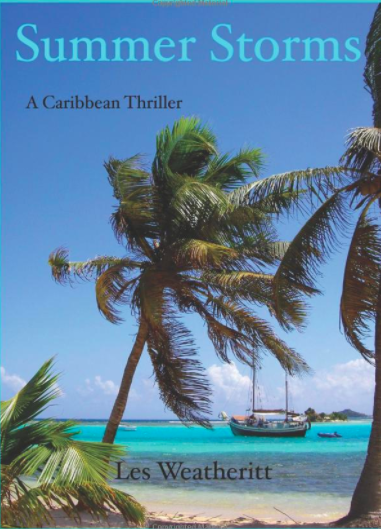The new novelA novel of adventure and deceit where political intrigue and double dealing in a Caribbean paradise are made more gripping by the desperate moments when characters must sail cunningly out of harm’s way if they are to survive... read more
|
Praise for Summer Storms
"Gripping, Caribbean-based thriller"
Amazon - January 2018
"A long, detailed, well written book that holds the interest and engages the brain, so worth its pennies"
Amazon Review - January 2018
"Cracking sailing adventure"
Amazon - December 2017
"Moves nicely along, and has all the content to keep you interested. The sailing scenes are factually correct which makes it a great read if you have an interest in boats. Can't wait for your next one."
Amazon Review - December 2017
Amazon - January 2018
"A long, detailed, well written book that holds the interest and engages the brain, so worth its pennies"
Amazon Review - January 2018
"Cracking sailing adventure"
Amazon - December 2017
"Moves nicely along, and has all the content to keep you interested. The sailing scenes are factually correct which makes it a great read if you have an interest in boats. Can't wait for your next one."
Amazon Review - December 2017

